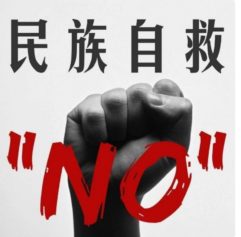China is refusing to bend to the will of the United States on the question of how to handle the conflict in Syria, setting up an intriguing clash between the two world superpowers.
China has increasingly begun to exert itself on the world stage, looking outward beyond the interests of Beijing and becoming more willing to tangle with the U.S. on the shape and scope of affairs in far-flung lands.
In Syria, the U.S. wants the United Nations to impose tough sanctions on the regime of Syrian President Bashar Assad in a bid to force him to stop down as leader. But China’s believes Syria’s civil war needs to be resolved through negotiations, not pressure imposed from outsiders. As U.S. Secretary of State Hillary Clinton engaged in talks with Chinese President Hu Jintao and Foreign Minister Yang Jiechi, it became clear that the two sides are still far from resolving the issue.
There is also serious disagreement about China’s role in the oil-rich South China Sea, an area that China wants to control without outside interference but the U.S. is pushing for China to give the smaller nations in the region like Vietnam, Brunei and the Philippines more say.
Clinton had just gone to Indonesia, where she tried to get the Southeast Asian nations to present a unified front in dealing with Beijing. The U.S. wants the nation’s to create a binding code of conduct for the region, in addition to a process of resolving maritime disputes. But China essentially wants the U.S. to mind its own business and let China continue to dominate the management of the seas.
“China has sovereignty over the islands in the South China Sea and the adjacent waters. There is plenty of historical and jurisprudence evidence of that,” Foreign Minister Yang said.
Clinton said it was a sign of progress and the maturing of the U.S. relationship with China that the two nations are able to discuss these disagreements.
“We are able to explore areas of agreement and disagreement in a very open manner, which I think demonstrates the maturity of the relationship and the chance to take it further in the future,” she said.
On the question of Syria, the U.S. and China both indicated that history will prove their position to be the right one—so one of the nations will wind up being wrong in the end.
“I think history will judge that China’s position on the Syria question is a promotion of the appropriate handling of the situation,” Yang told a news conference with Clinton. “For what we have in mind is the interests of the people of Syria and the region and the interests of peace, stability and development in the region and throughout the world.”
His comments were seen as a direct rebuke to Clinton’s claim that vetoing of U.N. sanctions by Russia and China have put those two countries “on the wrong side of history.”
Clinton said Syria’s violence was boiling over into other countries like Jordan and Turkey and that the Security Council has to act.
“It is no secret that we have been disappointed by Russia and China’s actions blocking tougher U.N. Security Council resolutions and we hope to continue to unite behind a real path forward to end the violence in Syria,” she said.


